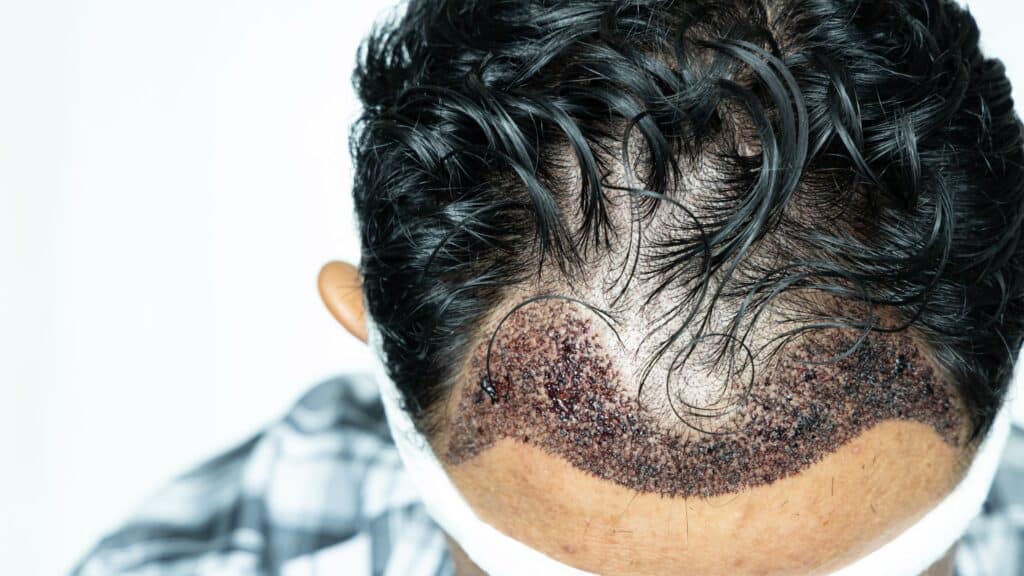When considering a hair transplant, one of the most common concerns is the level of pain involved. If you’re searching for answers about the discomfort during and after the procedure, rest assured that modern advancements in hair restoration techniques have made the process more manageable than ever. This guide, brought to you by Dr. Sania Awais and Dr. Abdul Majeed Makkiya, renowned Hair Specialist Doctor in Dubai, dives deep into the pain levels you can expect and what to anticipate during your hair transplant journey.
What Is a Hair Transplant?
A hair transplant is a minimally invasive surgical procedure aimed at restoring hair growth in areas affected by thinning or baldness. The two primary techniques used are:
- Follicular Unit Transplantation (FUT): A strip of skin is removed from the donor area, and individual follicles are transplanted to the recipient site.
- Follicular Unit Extraction (FUE): Individual hair follicles are extracted directly from the donor area and implanted in the target region.
Both techniques are performed under local anesthesia, significantly reducing discomfort during the procedure.
How Painful Is the Procedure?
During the Procedure
Most patients report minimal to no pain during a hair transplant. Here’s why:
- Local Anesthesia: Before the procedure begins, the scalp is numbed with a local anesthetic. While you may feel slight discomfort during the initial injection, the numbing effect ensures a painless experience throughout the surgery.
- Relaxation Techniques: Clinics often provide a calming environment with options like music or even light sedatives to make the experience as stress-free as possible.
After the Procedure
Post-procedure, it’s normal to experience mild discomfort, which can include:
- Tenderness: The treated areas may feel sensitive for a few days.
- Swelling: Some patients notice swelling in the forehead or around the eyes, which typically subsides within a week.
- Itching: As the scalp heals, slight itching can occur but is easily managed with prescribed medications.
Pain Management Tips
To ensure a smooth recovery, your surgeon will provide detailed aftercare instructions. These may include:
- Taking over-the-counter pain relievers like ibuprofen.
- Using a cold compress to reduce swelling.
- Avoiding strenuous activities and direct sunlight on the scalp.
Dr. Sania Awais and Dr. Abdul Majeed Makkiya emphasize the importance of following these guidelines to minimize discomfort and promote healing.
Benefits of Hair Transplants
Undergoing a hair transplant offers several life-changing benefits, including:
- Natural Results: Modern techniques ensure the transplanted hair blends seamlessly with your existing hair.
- Permanent Solution: Once the follicles take root, they grow naturally and are resistant to the effects of hair loss.
- Boosted Confidence: A fuller head of hair can improve self-esteem and overall quality of life.
Why Choose a Hair Specialist Doctor in Dubai?
Dubai is home to some of the world’s leading hair restoration experts, including Dr. Sania Awais and Dr. Abdul Majeed Makkiya. Their expertise, combined with state-of-the-art technology and personalized care, ensures a comfortable and successful hair transplant experience.
FAQs About Hair Transplant Pain
Q: Is a hair transplant more painful than other cosmetic procedures? A: Most patients find it less painful compared to procedures like dental work or even getting a tattoo, thanks to effective local anesthesia.
Q: How long does the pain last after the surgery? A: Any discomfort typically resolves within a few days to a week.
Q: Can I go back to work immediately after the procedure? A: While most people return to work within a few days, it’s best to take at least one to two days off to rest.
Final Thoughts
A hair transplant, when performed by an experienced Hair Specialist Doctor like Dr. Sania Awais or Dr. Abdul Majeed Makkiya, is a safe and relatively pain-free way to restore your hair and confidence. With proper care and guidance, you can achieve natural-looking, long-lasting results with minimal discomfort. If you’re considering this transformative procedure, schedule a consultation today to learn more.





Comments